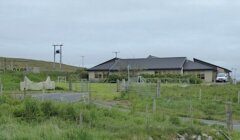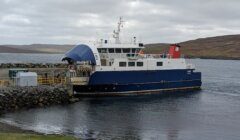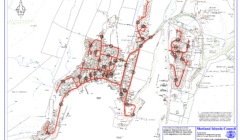Council / Savings challenge raised as SIC begins budget setting process
THE FIRST Shetland Islands Council (SIC) budget proposal for 2024/25 has been given the thumbs up by councillors.
Members of the education and families committee approved a £59.81 million budget for the services under its remit, such as schools and youth work.
However it includes a savings target of £1.84 million, with concerns raised over whether this is achievable.
This includes moving to maximum class sizes across all primary schools, while there will be a number of topics under review such as maintenance requirements of play areas, secondary staffing and curriculum and catering/cleaning services.
Shetland Central councillor Moraig Lyall said given the SIC continues to be in an unsustainable position, in some ways she had hoped to have seen more “radical” proposals to reduce costs.
“We keep being told that it is coming, that we’re going to be looking at service redesign etcetera etcetera, but it feels to me like it’s taking a while to get there,” she said.
Committee chair Davie Sandison agreed saying “maybe we’re hiding away from some of the tougher decisions” that will need to be made to seriously tackle the SIC’s unsustainable draw on reserves.
But he said he would like to think the proposals are prudent.
Every budget proposal which will be presented to SIC committees over the next fortnight will need to be approved by the full council on 27 March.
Across the proposed budget for 2024/25 there stands to be an “unsustainable” use of reserves to the tune of £23 million.
Around £8 million of this unsustainable draw has been attributed to the services under education and families.
Monday’s meeting heard that unlike previous years savings from the “vacancy factor” – un-recruited posts – will be held in contingency and will not be used in savings targets.
Become a member of Shetland News
This is a key reason why services under the education and families remit are expecting to be underspent on budget by around £400,000 come the end of the current financial year.
Council leader Emma Macdonald said 2024/25 is “going to be a really difficult budget setting cycle”.
“I think we have to recognise that the money that we’re looking to save within our budget, we need to make really large scale transformational change within our services,” she said.
Macdonald added that the SIC does not have the staff to keep delivering services the way it has.
Finance manager Paul Fraser told Monday’s meeting that in his view 2024/25 should be about exploring ways of maximising income to the SIC in the future.
This includes looking at the various charges the council sets for services, which get set in stone during the budget process.
For 2024/25 it is proposed that the price of school meals, for those who do not get ones for free, is to rise by nine per cent in primary and secondaries – for example an increase of 20p to £2.50 for a meal for primary pupils.
Some of the largest proposed increases include a full board placing request for the Anderson High School halls of residence, which could rise from £262.15 a week to £350.
The parents’ flat there could also rise from £21.40 to £60 a night – a rise of 180 per cent.
But Fraser said in future it would be worthwhile including a ‘why’ column on the list of charges to explain the reasons behind changes.
He said charges are a “major source of income for the council” and before the SIC looks at cutting costs, “we should ensure income is maximised”.
This also includes looking at external grant funding, Fraser said.
The finance manager added that the savings target for the education and families remit is “challenging”, particularly as departments found it difficult last year.
When asked how long it could take for the council to be in a sustainable position, Fraser said it could be five to ten years before the SIC “eats into this element”.
The proposed overall £166 million 2024/25 budget includes a £46 million draw on reserves in total, half of which is deemed unsustainable.
This £46 million is effectively the gap between the what the council receives in core funding from government and other income, and the money it spends delivering services.
“We can’t save this amount of money overnight,” Fraser said.
Fraser added it would be “breathtaking” to think of how to save one in every three pounds to end the reliance on reserves.
“It just doesn’t compute in terms of the services we deliver and how we would have to move,” he said.
Become a member of Shetland News
Shetland News is asking its many readers to consider paying for membership to get additional features and services: -
- Remove non-local ads;
- Bookmark posts to read later;
- Exclusive curated weekly newsletter;
- Hide membership messages;
- Comments open for discussion.
If you appreciate what we do and feel strongly about impartial local journalism, then please become a member of Shetland News by either making a single payment, or setting up a monthly, quarterly or yearly subscription.















































































